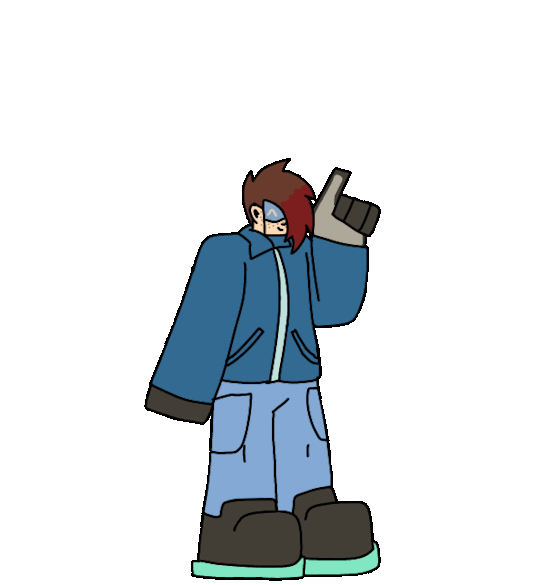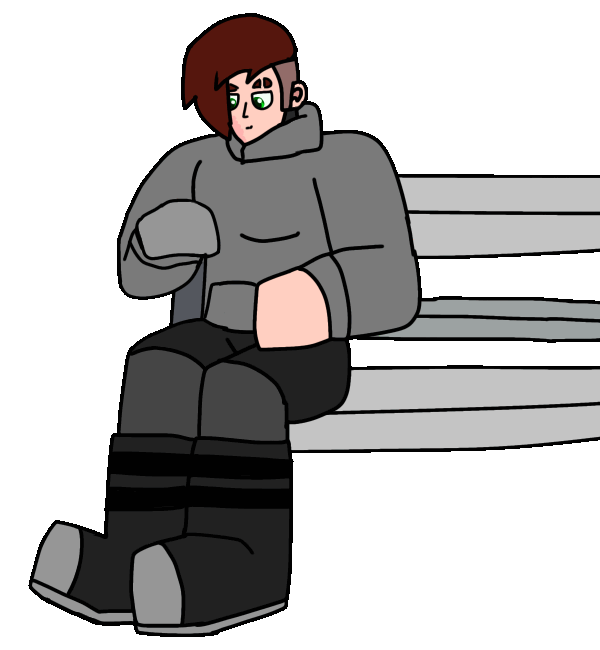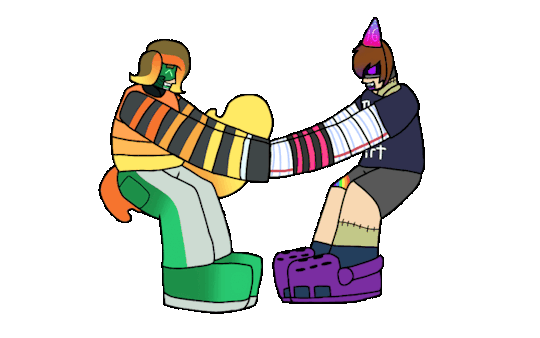#drivers license planned!
Text
okay it was good to gush about my feelings for him but overall it’s also really nice to be in a place where i don’t feel like i need him, i just like him and want him to be around. it is liberating not to feel desperate about my feelings right now but more like a soft witness to the whims of my heart.
#it’s so nice at home right now#i love love my flatmate so much and two more are really adorable and sweet too#also fucking funny#and yesterday i was with my best friend and another beloved friend and we worked and ate and laughed sooo much!!!#the new job seems really chill and i’m all relaxed right now#feeling at peace and excited at the same time#oh also new friends!#someone who likes me a lot!#new people about to move in!#spring coming!!!#drivers license planned!#new bike about to be bought!#loved scarf refound#festival chosen#home beautified#luck with money#feeling appreciated in my life#okay yeah i could still go on but you get the picture#it’s a sweet spot!#i#my life#oh oh oh also my room is slowly getting specks of direct sunlight again#and my bed is exactly where they hit and today i laid in the warm rays under my cozy blanket#cat moments!#OH and i ate pizza by the river with my crush flatmate and talked so much fun shit#AH ITS SO GOOD TO BE ALIVE SOMETIMES
4 notes
·
View notes
Text
Mood entering 2024

#teenage mutant ninja turtles#tmnt#tmnt 2003#tmnt 2k3#tmnt donatello#I do have plans for this year that include some major life goals that are long overdue (ex: a driver's license)#But January 1st feels like any other day otherwise
219 notes
·
View notes
Video
Once You See the Truth About Cars, You Can’t Unsee It
https://www.nytimes.com/2022/12/15/opinion/car-ownership-inequality.html
By Andrew Ross and Julie Livingston
Mr. Ross and Ms. Livingston are professors at New York University, members of its Prison Education Program Research Lab and authors of the book “Cars and Jails: Freedom Dreams, Debt, and Carcerality.”
In American consumer lore, the automobile has always been a “freedom machine” and liberty lies on the open road. “Americans are a race of independent people” whose “ancestors came to this country for the sake of freedom and adventure,” the National Automobile Chamber of Commerce’s soon-to-be-president, Roy Chapin, declared in 1924. “The automobile satisfies these instincts.” During the Cold War, vehicles with baroque tail fins and oodles of surplus chrome rolled off the assembly line, with Native American names like Pontiac, Apache, Dakota, Cherokee, Thunderbird and Winnebago — the ultimate expressions of capitalist triumph and Manifest Destiny.
But for many low-income and minority Americans, automobiles have been turbo-boosted engines of inequality, immobilizing their owners with debt, increasing their exposure to hostile law enforcement, and in general accelerating the forces that drive apart haves and have-nots.
Though progressive in intent, the Biden administration’s signature legislative achievements on infrastructure and climate change will further entrench the nation’s staunch commitment to car production, ownership and use. The recent Inflation Reduction Act offers subsidies for many kinds of vehicles using alternative fuel, and should result in real reductions in emissions, but it includes essentially no direct incentives for public transit — by far the most effective means of decarbonizing transport. And without comprehensive policy efforts to eliminate discriminatory policing and predatory lending, merely shifting to electric from combustion will do nothing to reduce car owners’ ever-growing risk of falling into legal and financial jeopardy, especially those who are poor or Black.
By the 1940s, African American car owners had more reason than anyone to see their vehicles as freedom machines, as a means to escape, however temporarily, redlined urban ghettos in the North or segregated towns in the South. But their progress on roads outside of the metro core was regularly obstructed by the police, threatened by vigilante assaults, and stymied by owners of whites-only restaurants, lodgings and gas stations. Courts granted the police vast discretionary authority to stop and search for any one of hundreds of code violations — powers that they did not apply evenly. Today, officers make more than 50,000 traffic stops a day. Driving while Black has become a major route to incarceration — or much worse. When Daunte Wright was killed by a police officer in April 2021, he had been pulled over for an expired registration tag on his car’s license plate. He joined the long list of Black drivers whose violent and premature deaths at the hands of police were set in motion by a minor traffic infraction — Sandra Bland (failure to use a turn signal), Maurice Gordon (alleged speeding), Samuel DuBose (missing front license plate) and Philando Castile and Walter Scott (broken taillights) among them. Despite widespread criticism of the flimsy pretexts used to justify traffic stops, and the increasing availability of cellphone or police body cam videos, the most recent data shows that the number of deaths from police-driver interactions is almost as high as it has been over the past five years.
In the consumer arena, cars have become tightly sprung debt traps. The average monthly auto loan payment crossed $700 for the first time this year, which does not include insurance or maintenance costs. Subprime lending and longer loan terms of up to 84 months have resulted in a doubling of auto loan debt over the last decade and a notable surge in the number of drivers who are “upside down”— owing more money than their cars are worth. But, again, the pain is not evenly distributed. Auto financing companies often charge nonwhite consumers higher interest rates than white consumers, as do insurers.
Formerly incarcerated buyers whose credit scores are depressed from inactivity are especially red meat to dealers and predatory lenders. In our research, we spoke to many such buyers who found it easier, upon release from prison, to acquire expensive cars than to secure an affordable apartment. Some, like LeMarcus, a Black Brooklynite (whose name has been changed to protect his privacy under ethical research guidelines), discovered that loans were readily available for a luxury vehicle but not for the more practical car he wanted. Even with friends and family willing to help him with a down payment, after he spent roughly five years in prison, his credit score made it impossible to get a Honda or “a regular car.” Instead, relying on a friend to co-sign a loan, he was offered a high-interest loan on a pre-owned Mercedes E350. LeMarcus knew it was a bad deal, but the dealer told him the bank that would have financed a Honda “wanted a more solid foundation, good credit, income was showing more,” but that to finance the Mercedes, it “was actually willing to work with the people with lower credit and lower down payments.” We interviewed many other formerly incarcerated people who followed a similar path, only to see their cars repossessed.
Did you know you can share 10 gift articles a month, even with nonsubscribers?
Share this article.
LeMarcus was “car rich, cash poor,” a common and precarious condition that can have serious legal consequences for low-income drivers, as can something as simple as a speeding ticket. A $200 ticket is a meaningless deterrent to a hedge fund manager from Greenwich, Conn., who is pulled over on the way to the golf club, but it could be a devastating blow to those who mow the fairways at the same club. If they cannot pay promptly, they will face cascading penalties. If they cannot take a day off work to appear in court, they risk a bench warrant or loss of their license for debt delinquency. Judges in local courts routinely skirt the law of the land (in Supreme Court decisions like Bearden v. Georgia and Timbs v. Indiana) by disregarding the offender’s ability to pay traffic debt. At the request of collection agencies, they also issue arrest or contempt warrants for failure to appear in court on unpaid auto loan debts. With few other options to travel to work, millions of Americans make the choice to continue driving even without a license, which means their next traffic stop may land them in jail.
The pathway that leads from a simple traffic fine to financial insolvency or detention is increasingly crowded because of the spread of revenue policing intended to generate income from traffic tickets, court fees and asset forfeiture. Fiscally squeezed by austerity policies, officials extract the funds from those least able to pay. This is not only an awful way to fund governments; it is also a form of backdoor, regressive taxation that circumvents voters’ input.
Deadly traffic stops, racially biased predatory lending and revenue policing have all come under public scrutiny of late, but typically they are viewed as distinct realms of injustice, rather than as the interlocking systems that they are. Once you see it, you can’t unsee it: A traffic stop can result in fines or arrest; time behind bars can result in repossession or a low credit score; a low score results in more debt and less ability to pay fines, fees and surcharges. Championed as a kind of liberation, car ownership — all but mandatory in most parts of the country — has for many become a vehicle of capture and control.
Industry boosters promise us that technological advances like on-demand transport, self-driving electric vehicles and artificial intelligence-powered traffic cameras will smooth out the human errors that lead to discrimination, and that car-sharing will reduce the runaway costs of ownership. But no combination of apps and cloud-based solutions can ensure that the dealerships, local municipalities, courts and prison industries will be willing to give up the steady income they derive from shaking down motorists.
Aside from the profound need for accessible public transportation, what could help? Withdraw armed police officers from traffic duties, just as they have been from parking and tollbooth enforcement in many jurisdictions. Introduce income-graduated traffic fines. Regulate auto lending with strict interest caps and steep penalties for concealing fees and add-ons and for other well-known dealership scams. Crack down hard on the widespread use of revenue policing. And close the back door to debtors’ prisons by ending the use of arrest warrants in debt collection cases. Without determined public action along these lines, technological advances often end up reproducing deeply rooted prejudices. As Malcolm X wisely said, “Racism is like a Cadillac; they bring out a new model every year.”
Andrew Ross and Julie Livingston are professors at New York University, members of its Prison Education Program Research Lab and authors of the book “Cars and Jails: Freedom Dreams, Debt, and Carcerality.”
#article#new york times#Tiktok#Jamelle Bouie#car culture#car dependency#urban design#urban planning#car trap#infrastructure#bike infrastructure#income inequality#inequality#wealth inequality#law enforcement#debt#drivers license#traffic
59 notes
·
View notes
Text
Yoooo happy birthday @petrock42clone I made a thing for ya! :D
This thing actually took a little while to finish (with the frames being manually being drawn on Ibis Paint and Microsoft Clipchamp being a bitch), but considering what I'm able to do as an amateur animator, I like how it turned out ^^
Characters used (in order of appearance)
Sketchy (Axel's ARMSona)
Crossfire (my ARMSona)
Tracey Doodles (on the left) (ARMS OC by Axel)
Scarfer (on the right) (ARMS OC by Axel)
Jeon-Neo (Punch Out OC by Axel)
Kapster Shot (far left)(ARMS OC by Axel) (I actually did the design based on a description of what he looked like by Axel a while back, so if I missed anything, I'm sorry TwT)
Dustin Fleetwood (middle left) (Punch Out OC by Axel)
Beep Bow (middle right) (Punch Out OC by Axel)
Siren Sparky (far right) (Punch Out OC by Axel)
youtube
Here's the inspiration for the video (I also got the audio from there and yes the audio is edited there too)
Okay I'm gonna post (most of) the individual animations below, since I really like how they turned out







#crossfire drawings#crossfire animations#<- in case I plan on doing more animations in which I might it sounds fun ^^#art#digital art#arms#arms game#punch out#arms oc#punch out oc#gift for a friend#animation#if there's anything wonky on the video I blame most of it on Microsoft ClipChamp#Youtube#also good luck on getting your drivers license/learners permit Axel!!!
4 notes
·
View notes
Text
when it comes down to it however the main reason shifty is the brain is bc lifty is obviously the muscle and manual labourer





#img#htf#and also shifty is the one with the drivers license#shifty comes up with the plans and drives them to their destination and then gets lifty to do all the heavy. lifting.#AND ditches him at every opportunity#despite the fact lifty is LITERALLY carrying him#shifty sucks so bad. lifty also sucks but objectively less than shifty#<<<<<<< SO VERY AFFECTIONATE#I LOVE THEM
28 notes
·
View notes
Text
Um. Day ruined :D
#i was planning out how to tell my mom i need therapy in a way that might have convinced her to at least let me make a test appointment#but then i properly looked up the financial stuff and since i don't want to tell my insurance so i don't have anything in my health record#and i'm not sure my insurance would pay for this kind of therapy anyway i'd have to pay the sessions privately#and those are between €50 and €150 depending on area and needs of the patient so let's say €100 on average#there's no way i'll pay that because i need to save some money for when i start working and may need to commute or rent an apartment#plus i'm not done with my driver's license so the next lessons and exam fee take up a lot more money and my family's struggling financially#so i can't afford to pay over €400 per month at least right now 😃#maybe when i have a job but for now i'll keep trying to fix myself without professional help and just based on books and websites#which is working but still i'm crying and annoyed#mel talks
7 notes
·
View notes
Text
Watching YouTube channel Not Just Bikes as a Dutch person is really interesting
From my fellow Dutchies I mostly hear sooo much complaining about how everything is bad, and I too participate in this ancient Dutch ritual frequently. But then there is this guy, this channel, that is basically bike and The Netherlands (-style city planning) propaganda and I can't help but agree that it does seem like the best option.
#literally. american/canadian city planning seems like a straight up hell and I wouldn't survive#not having my drivers license doesn't help here#so uhhh yeah. go bicycle propaganda youtube channel!#not just bikes#let's hope this post doesn't backfire on me in any way
25 notes
·
View notes
Text
Worrying I'm developing a case of senioritis, not in the screw-this-I'm-just-not-going-to-do-it way, but in the holy-shit-can-I-please-finally-just-be-done way
#when i complain about losing all of my 20s to school i'm not complaining about losing my 'best years' or 'party years' or whatever#i'm complaining about how with each passing year i am slowly losing more abilities and having more pain and health issues#my guess is that chronic stress has caused a good deal of them#so by the time i graduate i'm going to be 27 (no money no prospects lol) with no driver's license no savings no plans no apartment -#- and constant pain.#all for a BA in gender studies#so i'm feeling a liiiiittle fucking down.#i've liked being a student. it's the only thing i know how to do. but now i am ready to do Other Things With My Life please.#at least with a 9-5 you have your weekends free AND you're making money#me i have to cram hours and hours of work in on the weekends while everyone is home and making noise bc i don't have time during the week -#- because of my 3-4 hour collective commute / class / MORE work / pain from being out all day#i kind of hate hearing my irl friends complain about their jobs to be honest
5 notes
·
View notes
Text
thinking when I'm (hopefully) less depressed in the future maybe I should do a challenge to myself to make short one week time limit storyboards and animatics for a month
Would be a good way to build up my portfolio at least, since it's pretty barebones right now
Could be completely original projects or based on other audio I've found, could be minute long or just a few seconds
And if I finish earlier than the week deadline I can just reset the deadline earlier for the next project, so I can have more projects than there are weeks in a month
idk just would be a fun little project I think
#that being said I can barely focus on doing much of anything rn my mental health is so bad#It'll probably be a LONG time until I do something like that#I'll still try to finish my current animatic projects too since I have two going and at least one more planned#I also still have the comic that I need to update but h...#I hate doing the backgrounds#and don't have much energy to continue it right now#on top of that also still need to actually study to take my drivers license but can't get myself to do it#but anyway
2 notes
·
View notes
Text
hello google how to not be stressed over plans that are not stressful. thank you
#me.txt#im driving my friend and i to pride tomorrow#because i own a car and have my drivers license and therefor i am now the friend group taxi#(thats fine i dont mind it i love taking my friends places)#BUT. THERE ARE SO MANY TIMES INVOLVED#like i had 0 problems taking us to the beach yesterday. we just went on our own time#but like i need to not miss the ferry. this is very crucial we cannot miss the 11:30 ferry#and liek my cars check engine light came on and autozone didnt help and wahtrsuyjhtejhsgdf#im gonna implode. thats all#i just have to make it thru this weekend and then i have plans on tuesday w a cute boy (we are going for coffee + thrifting)#AND THEN I AM GOING TO BE THE BIGGEST HOMEBODY FOR LIKE 2 WEEKS AND NOT DRIVE ANYWHERE !!!!!!!!!!!!!!!!!!!!!!!!
4 notes
·
View notes
Photo



ive narrowed down my next tattoo choices to be one of these three... i RLY want the elaine of shalott (the first one) but it might not fit on the backside of my forearm so if the tattoo artist cant fit it then i’ll pick one of the other two
#the pomegranate might be better since i already have a coyote skull#dl#animal horror#also im prob gonna get this tattoo once i have my drivers license#IF I HAVE MONEY. bc the car i might b getting needs some repairs#it needs new tires and uhhhh i need to switch the registry or smth#BUT ANYWAY. planning a reward for myself will help me work even harder
4 notes
·
View notes
Text
y’know maybe I should just try to continue working on my fics
#disco speaks!#like a little bit on each every day or so SO I CAN POST THEM AND NOT HAVE THEM SAVED IN MY DRIVE#the fnaf dca knight light one has like 4000 or more words written for it#i have a sisters grimm one that’s got 500 or more words#another Cassandra and Casey Jr one plus one that I’ve had in my drafts and the final chapter of GRoS#why is that the acronym for Getting Rid of Structures D:#and then I have at least two chapters planned out for Four Million Years Later#plus I have ideas for two fnaf sb aus and then probably could do one aww man I forgot no wait!! I could write something for#Raph gets his Driver’s License!!! cause I have that finished page of a comic that I’ve never posted#technically I have a Donna and Ronan ficlet that I’ve written#and if I even wanted to I could write a something for my ocs#I’m not out of options for this stuff#the reason I bring this up is because I may have unhealthily tried to see what page of AO3 is Getting Rid of Structures on in the Cassandra#tag and also I actually updated the tags to make it more accurate and also I realized that I did the bare minimum of tags
3 notes
·
View notes
Text
Well, we broke up so there's only one thing left for me to do now
I have to enter my gym villain arc
#i'm also studying to get my drivers license and planning on applying for my first job#my elle woods era...
3 notes
·
View notes
Text
Ough my* station wagon so fucked up
#shes ✨ rusting ✨ and needs new paint#also an oil change i think? idk shes not mine quite yet#* shes my dads and hes planning on letting me have her unless i dont want it#i dont have my license yet so thats a thing. i shouldve done drivers ed bc i forgot how#my parents can be when teaching things
0 notes
Text
really wish a lack of in person interaction & involvement in the world paired with extensive internet involvement to make up for that would stop being treated as a moral failure
#queerpd.txt#vent#kinda not really#thank you tumblr user for expressing how you’re a good chronically online who still goes outside and just knows niche internet happenings#i however am terrified of making plans and can only go out if i have someone to take me bc i still don’t have a drivers license
0 notes
Text
got startled awake by the intercom going off, ran to get it still semi asleep, they guy wanted me to "take my grey car out of that parking spot" my guy i don't even have a car let alone grey LOL so i had to explain that in the simplest way that i could and still felt like an idiot saying "ah... non è mio..."
#if only he knew how much work im gonna have to do to drive here#i have my drivers license in brasil but its not worth it to convert it into an international one bc it only lasts a year#and it cant be renewed i think#also im only gonna need it once we get a car#so we both just said fuck it we're doing driving school again bc its less expensive and we will probably need the recap#2024/2025 plans tho
1 note
·
View note